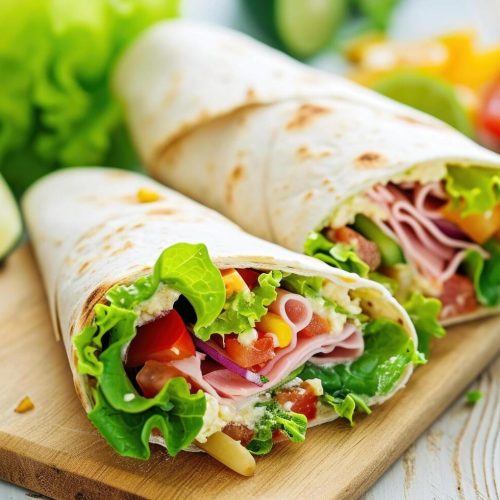Losing body fat is a common fitness goal for many people looking to improve their health and physical appearance. While the journey to reducing body fat can seem challenging, understanding the key strategies for achieving this goal can make the process more manageable and sustainable. This article will outline proven methods for losing body fat, including dietary changes, exercise routines, and lifestyle adjustments, to help you reach your fitness goals effectively.
Understanding Body Fat Loss
Before diving into strategies, it’s important to understand that losing body fat involves creating a caloric deficit, where you burn more calories than you consume. This process requires a combination of proper nutrition, regular exercise, and healthy lifestyle habits.
Key Concepts:
- Caloric Deficit: To lose body fat, you must consume fewer calories than your body needs to maintain its current weight. This forces your body to use stored fat for energy.
- Sustainable Weight Loss: Aim for gradual fat loss, as rapid weight loss can lead to muscle loss and other health issues. A safe and sustainable rate is about 1-2 pounds of fat loss per week.
1. Adjust Your Diet
Prioritize Whole Foods: Focus on eating nutrient-dense foods that provide essential vitamins and minerals while keeping you full and satisfied. Include a variety of vegetables, fruits, lean proteins, whole grains, and healthy fats in your diet.
Reduce Processed Foods and Sugars: Processed foods and added sugars can contribute to excess calorie intake and may lead to weight gain. Limit consumption of sugary snacks, beverages, and refined carbohydrates.
Control Portion Sizes: Be mindful of portion sizes to avoid overeating. Use smaller plates, measure your food, and practice intuitive eating to understand your hunger and fullness cues.
Increase Protein Intake: Protein is essential for muscle maintenance and can help keep you feeling full longer. Incorporate lean protein sources such as chicken, fish, beans, tofu, and low-fat dairy into your meals.
Stay Hydrated: Drinking plenty of water helps support metabolism and can reduce feelings of hunger. Aim for at least 8 cups of water per day and consider drinking a glass of water before meals to help with portion control.
2. Incorporate Regular Exercise
Combine Cardio and Strength Training: A balanced exercise routine that includes both cardiovascular (cardio) exercises and strength training can enhance fat loss and improve overall fitness.
- Cardiovascular Exercise: Activities like running, cycling, swimming, and brisk walking can help you burn calories and improve cardiovascular health. Aim for at least 150 minutes of moderate-intensity cardio or 75 minutes of vigorous-intensity cardio per week.
- Strength Training: Building muscle through strength training can increase your resting metabolic rate, leading to more calories burned at rest. Include exercises like weight lifting, resistance band workouts, or bodyweight exercises (e.g., squats, push-ups) 2-3 times per week.
Incorporate High-Intensity Interval Training (HIIT): HIIT workouts involve short bursts of intense exercise followed by periods of rest or low-intensity exercise. HIIT has been shown to be effective for burning fat and improving fitness in a shorter amount of time compared to traditional cardio.
Stay Consistent: Consistency is key to achieving and maintaining fat loss. Create a workout schedule that fits your lifestyle and stick to it. Even short, regular workouts can contribute to significant fat loss over time.
3. Make Lifestyle Adjustments
Get Adequate Sleep: Quality sleep is crucial for fat loss and overall health. Aim for 7-9 hours of sleep per night to support recovery, hormone balance, and metabolism. Poor sleep can lead to increased hunger and cravings, making it harder to stick to your fat loss goals.
Manage Stress: Chronic stress can negatively impact your weight loss efforts by increasing hunger and cravings for unhealthy foods. Practice stress-reducing techniques such as meditation, deep breathing, yoga, or spending time in nature to keep stress levels in check.
Track Your Progress: Monitoring your progress can help keep you motivated and on track. Use tools like food diaries, fitness apps, or body composition scales to track changes in your diet, exercise, and body fat percentage.
Set Realistic Goals: Establish achievable and specific goals for your fat loss journey. Focus on setting short-term milestones that contribute to your long-term objectives, and celebrate your successes along the way.
4. Seek Professional Guidance
Consult a Registered Dietitian: A registered dietitian can provide personalized nutrition advice and help you create a balanced meal plan that supports your fat loss goals while meeting your individual needs.
Work with a Personal Trainer: A certified personal trainer can design an exercise program tailored to your fitness level and goals, ensuring that you perform exercises correctly and effectively.
Consider Health Assessments: If you have underlying health conditions or are unsure about the best approach to fat loss, consider seeking guidance from a healthcare professional to ensure a safe and effective strategy.
Conclusion
Losing body fat requires a holistic approach that combines healthy eating, regular exercise, and positive lifestyle changes. By focusing on nutrient-dense foods, engaging in a balanced exercise routine, managing stress, and tracking your progress, you can effectively work toward your fat loss goals. Remember, sustainable fat loss is a gradual process, and consistency is key. With patience and dedication, you can achieve lasting results and improve your overall health and well-being.
Tags: body fat loss, fat loss strategies, healthy eating, exercise routine, caloric deficit, strength training, cardiovascular exercise, HIIT workouts, lifestyle adjustments, weight management





